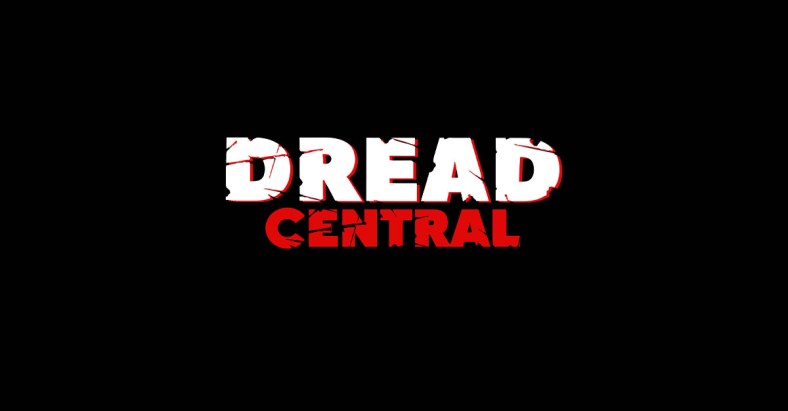Exclusive Interview: Neil Marshall Drew From Westerns & Puritan History to Make Witch-Hunter Horror THE RECKONING

It’s impossible not to feel the spirit of Vincent Price flowing through The Reckoning.
In Neil Marshall’s new film, a farmer’s widow named Grace (Charlotte Kirk, who also co-wrote the script) endures a series of grisly witch trials conducted by one Judge Moorcroft (Sean Pertwee) at the height of hysteria during the Great Plague of London in 1665. Pertwee’s performance oozes pious malevolence, breathing life into the same historical horrors that Price once masterfully did as Matthew Hopkins in Witchfinder General.
Synopsis:
After losing her husband during the Great Plague, Grace Haverstock (Charlotte Kirk) is unjustly accused of being a witch and placed in the custody of England’s most ruthless witch-hunter, Judge Moorcroft (Sean Pertwee). Forced to endure physical and emotional torture while maintaining her innocence, Grace must face her own inner demons as the Devil himself starts to work his way into her mind.
“Price is in there, for sure,” Marshall tells Dread Central, “and there are some strong Hammer horror elements throughout the whole film and within that character.” But he adds that another influence, though a little less obvious, is just as important: “the iconography of the western.”
Marshall says that Moorcroft’s partnership with Ursula (Suzanne Magowan)—a woman who survived a burning at the stake to become his assistant—was modeled after “a great western called Warlock with Henry Fonda and Anthony Quinn.”
“Moorcroft and Ursula’s relationship is like the characters’ in Warlock,” he explains. “He’s the main guy, but she’s there to watch his back all the time. I really liked that concept. Moorcroft is as much gothic as anything else, but when he’s striding into the saloon with his massive hat, the film’s certainly got those western elements and we didn’t hold back from giving it that.”
Though it’s set in England, The Reckoning was filmed entirely in Budapest. Marshall says that shooting under the hot Hungarian sun was another influence on its western aesthetic.
“The film was originally conceived as being dull and dreary—cold, rainy, and very bleak,” Marshall says. “But once we were out in the summertime, that changed dramatically.”
“Our cinematographer, Luke Bryant, and I removed ourselves from the initial story concept, sat down, and asked, ‘How do we get around this?,’” he continues. “That’s when we first began to rethink the movie as a western: embracing the dust and the sun, the town sheriff archetype, the saloons, the horses. We decided to make that kind of movie rather than keep trying to fight it, and for a British movie it makes for an interesting vibe.”
None of this is to say that The Reckoning is a “sunny” movie: It packs a punch as heavy as any, especially when Grace is subjected to Moorcroft’s sadistic torture devices. One particular scene, involving a depraved instrument known as the Pear of Anguish, shows just how much sheer agony she’s willing to withstand so as to not deliver a false confession.
“As we were researching to write the script, we found that a lot of the torture devices used on the women who were tried and tortured for witchcraft were lethal,” Marshall says. “So, our challenge was to find torture methods that were real, but also mostly non-lethal. The Pear of Anguish is utterly horrific, but it’s designed to make you talk more than anything. You can survive it.”

Still, Marshall stresses that “it was never my intention to make a film that would dwell on the torture. I wanted to imply it—suggest it, hinge on what’s going to happen, and then leave it at that. Because that’s really all the audience needs to know.”
Most horror directors’ relationship with their audience extends far beyond the work they produce, and for Marshall, there’s no place where that holds truer than on the festival circuit. He enjoyed The Reckoning’s premiere at Fantasia International Film Festival last August, but of course remains frustrated by how many horror fans couldn’t share in the experience during a pandemic-stricken year.
“It’s disappointing: Part of my reason for going back into horror filmmaking was to get back onto the festival circuit, because I love it,” Marshall says. “I love interacting with audiences and the fans. I’ve done the circuit without having to leave the house, and there are some Q and As, things like that. But on the whole, it’s far from ideal.”
“So many festivals are surviving this challenge the best they possibly can, but there’s nothing to really compare this against,” he continues. “It’s hard to say if they did or didn’t do well because it’s impossible to set expectations for anything like this.” He’s grateful that his new work is still finding new viewers, but he’s still holding out for a better future for film.
“I’m just hoping that on the next film, things will be back up and running,” Marshall says. “Because this is never gonna be as good as the real thing.”
The Reckoning is now playing in select theaters, drive-ins, on digital, and On Demand.

Categorized:Interviews News

